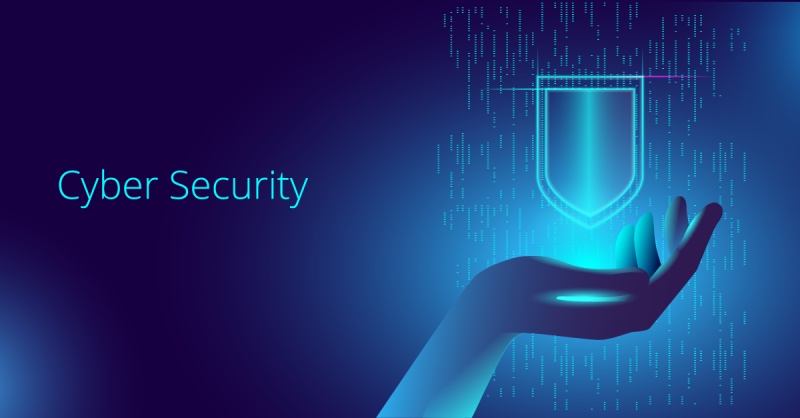In the current digital era, the field of cybersecurity is expanding at a rapid pace. It is highly recommended that college students use the resources accessible to acquire knowledge about safeguarding themselves and others from cyber hazards. Proficiency in cybersecurity is increasingly in demand, and possessing these skills can lead to many career prospects. Below are some practical methods for college students to learn about cybersecurity.
What is Cybersecurity?
The term "cybersecurity" denotes shielding computer networks, systems, devices, and data from unlawful access, damage, or theft. It encompasses various methods, technologies, and practices intended to thwart, identify, and address cyber threats like hacking, phishing, malware, and ransomware attacks. The primary objective of cybersecurity is to guarantee the privacy, confidentiality, and availability of digital information while protecting the rights of individuals and organizations. The growing reliance on digital technology in all areas of life has made cybersecurity a crucial issue for people, corporations, and governments worldwide.
- Take Cybersecurity Courses
Taking cybersecurity classes is one of the most efficient methods to learn cybersecurity. Cybersecurity courses are widely available in colleges and institutions' curricula. The fundamentals of cybersecurity can be covered in beginning courses, after which students can progress to more advanced courses focusing on particular subjects like network security, cryptography, and ethical hacking. These classes give students practical experience in real-world situations, assisting them in developing abilities they may use in the workplace.
- Attend Cybersecurity Conferences
Another excellent option for college students to learn about cybersecurity is attending cybersecurity conferences. These gatherings of subject matter experts allow participants to learn about the most recent cybersecurity dangers, trends, and solutions. Students can network with professionals in the field to forge connections and uncover employment prospects.
- Participate in Cybersecurity Competitions
College students may learn about cybersecurity in a fun and exciting way by taking part in contests. These contests put competitors to the test by asking them to find and fix vulnerabilities in computer systems and other real-world cybersecurity issues. College students can show off their abilities and compete against other students worldwide in events like the National Cyber League and CyberPatriot.
- Read Cybersecurity Books and Blogs
Reading cybersecurity books and blogs is another way for college students to learn about cybersecurityMany books cover a wide range of cybersecurity topics, from introductory material to more advanced topics such as penetration testing and incident response. Blogs written by cybersecurity experts can also provide students with valuable insights and information about the latest threats and trends in the industry.
- Practice on Virtual Machines
College students can practice on virtual machines to get practical experience in cybersecurity. Students can mimic real-world situations using virtual machines in a secure setting. Students may hone their abilities by installing firewalls, identifying and thwarting threats, and conducting penetration tests. Additionally, virtual machines are an excellent opportunity for students to experiment with various tools and methods without running the risk of breaking complete computer systems.
What are some potential employments?
Cybersecurity is a rapidly growing field with many employment opportunities in various industries. Here are some potential employment options for individuals with cybersecurity skills:
- Information Security Analyst
Information security analysts are responsible for monitoring computer networks and systems for security breaches, investigating security incidents, and recommending security measures to protect organizations from cyber threats.
- Network Security Engineer
Network security engineers design and implement security measures to protect computer networks from cyber threats. They are responsible for configuring firewalls, intrusion detection systems, and other network security devices.
- Cybersecurity Consultant
Cybersecurity consultants provide advice and recommendations to organizations on improving their cybersecurity systems. They perform risk assessments, develop security policies and procedures, and they recommend security solutions to mitigate cyber risks.
- Penetration Tester
Penetration testers, also known as ethical hackers, are hired by organizations to test their computer systems, networks, and applications for vulnerabilities. They attempt to exploit vulnerabilities to identify weaknesses that malicious actors could use.
- Security Software Developer
Network security experts create and implement security measures to defend computer networks from online attacks. They are responsible for setting up network security tools such as firewalls, intrusion detection systems, etc.
- Chief Information Security Officer (CISO)
The cybersecurity strategy of a business is created and carried out by the CISO. They manage cybersecurity workers, direct the organization's cybersecurity program, and guarantee adherence to all applicable laws and rules.
These are only a handful of the numerous potential career paths in cybersecurity. As organizations and governments emphasize cybersecurity, there will likely be an increase in demand for cybersecurity personnel.
College students nowadays can become familiar with cybersecurity. By taking classes, attending conferences, competing, reading books and blogs, and practicing on virtual computers, college students can learn the knowledge and abilities required to protect themselves and others from cyber threats. Additionally, by doing this, they greatly expand cybersecurity job opportunities.


No comments yet